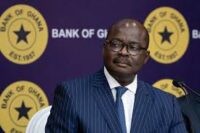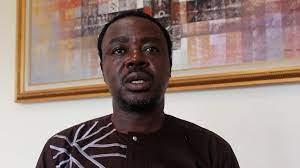Ghana’s long-running debt restructuring inched another step closer to the finish line on Friday after the country’s bilateral creditors – the likes of France and China – sent over a draft ‘memorandum of understanding’ for their $5.4 billion part of the deal.
Below is a condensed timeline of key events:
February 2022 – Credit ratings agency Moody’s downgrades Ghana’s credit rating from B3 to Caa1, saying the country had a “very high credit risk”, after Fitch cut its Ghana credit rating to B- from B in January.
March 2022 – Ghana’s central bank hikes interest rates by a record 250 basis points to 17% in a bid to stem rocketing inflation and a weakening currency.
April 2022 – The cocoa producer’s parliament approves an “e-levy” tax on electronic payments.
May 2022 – Ghana’s then-finance minister Ken Ofori-Atta says it will manage its debt without International Monetary Fund (IMF) help.
July 1, 2022 – Ghana’s government changes its mind and asks the IMF for a loan, amid street protests against growing economic hardship.
July 20, 2022 – Ghana’s parliament approves a $750 million loan from the African Export Import Bank as it scrambles to avoid default.
August 2022 – Ghana’s central bank delivers another record interest rate hike, as inflation continues climbing.
Dec. 5, 2022 – Ghana launches a domestic debt exchange in a bid to deal with spiralling debt payments.
Dec. 12, 2022 – Ghana and the IMF reach a “staff-level agreement” on a $3 billion rescue package, with debt restructuring one of the conditions.
Dec. 20, 2022 – Ghana says it will default on most external debt.
Dec. 22, 2022 – Local pension funds are exempted from the domestic debt exchange after unions threaten a general strike.
January 2023 – Ghana requests a debt restructuring under the G20’s Common Framework process, set up in response to the COVID-19 pandemic to include China, India and other creditor countries not in the traditional Paris Club of wealthy lending nations.







